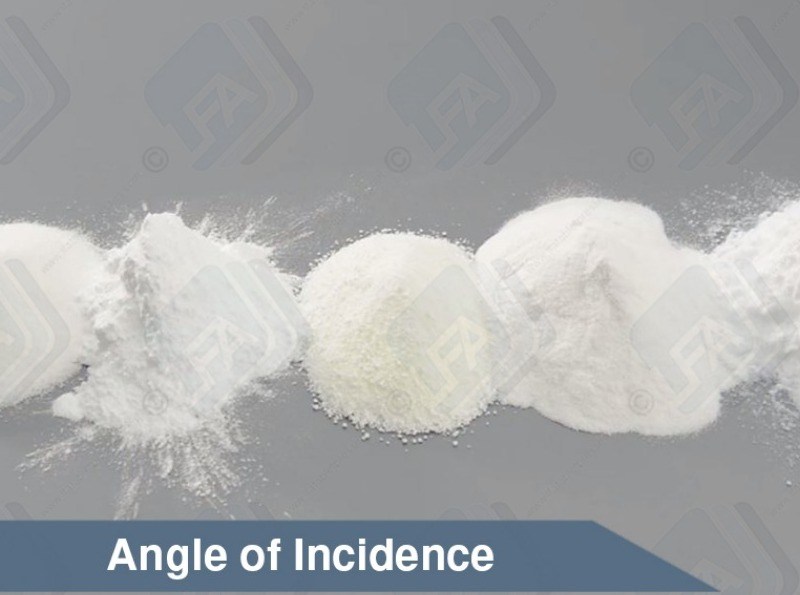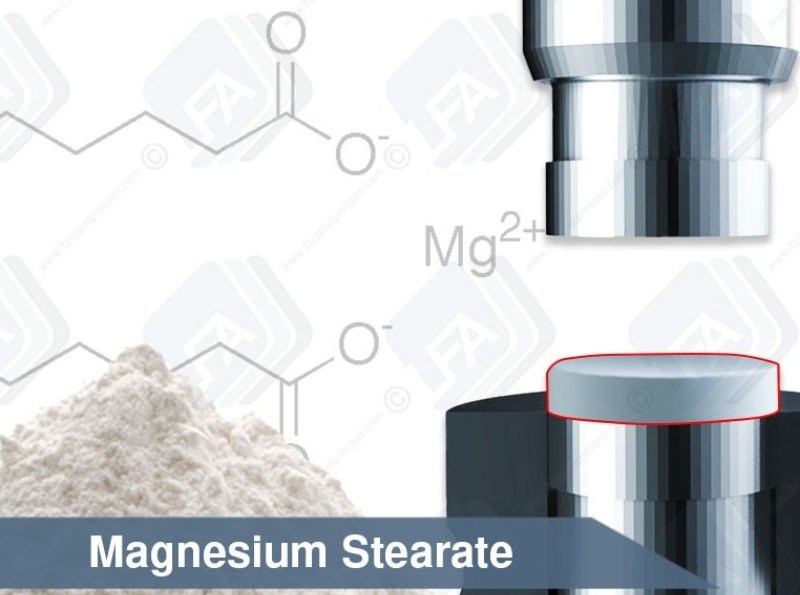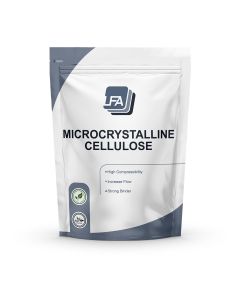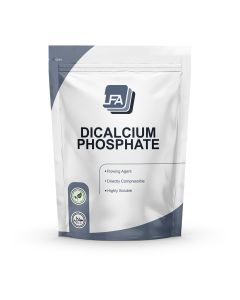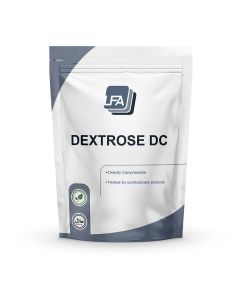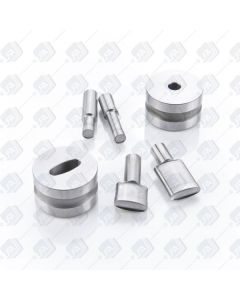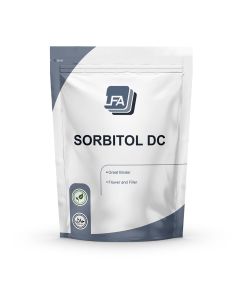Magnesium stearate is a magnesium salt combined with stearic acid. Magnesium is an essential mineral that it is often missing from the human diet despite the many places it is found. It helps to keep blood sugar and blood pressure at the right levels. It helps form DNA and protein, and keeps muscles and nerves functioning correctly. Women need 320 mg/day while men need 420 mg/day to be healthy. Stearic acid is a common fatty acid found in fish, grains, eggs, butter, poultry, meat and dairy products. In meat, it makes up one third of the saturated fat. So it is a common, safe ingredient that is already familiar to consumers, which is important for consumer confidence.
Magnesium stearate is a fine white powder. Its main purpose is providing an effective dry lubricant for capsules and tablets. It increases flowability, which ensures efficiency through the manufacturing process. It is inert and can make your formulation process much easier, making it one of the most popular flowing agents in the industry.
Lubricants are crucial in tableting for specific processing benefits. There are three important roles of a lubricant:
- To lessen friction at the junction between a tablet's surface and the die wall during ejection, reducing wear on the tablets.
- To prevent the solution from sticking to the parts of a machine that it is currently running through.
- To increase flow by reducing friction amongst the particles themselves.
A good lubricant will form a strong layer over the surface. Another requirement is that it is adverse to a changes that may be caused by process variables such as flow, pressure and temperature. If any of these changes occur, the manufacturing process needs to remain unaffected.
Magnesium stearate is:
- "GRAS" (Generally Recognized As Safe) listed
- Designated as a food additive in Europe
- Manufactured from vegetables oils, most commonly palm oil and cottonseed oil
Stearates can be manufactured through hydrogenation (treatment with hydrogen). The result of this process is a product that needs to be handled with care.
Magnesium stearate cannot be mixed with air as dust explosion can occur. It should be kept away from flames at all costs. If it is dry, it can be charged electrostatically by swirling and pouring among other actions. If inhaled it can cause coughing, and if ingested vomiting may occur. Use protective gloves, safety goggles and a mask while handling this product.
The chemical formula of magnesium stearate is Mg(C18H35O2). Other names for magnesium stearate are octadecanoic acid and magnesium salt.
This product is generally the top choice as a dry lubricant. Additionally, as a mineral comfortable in the human body it can be consumed safely on a regular basis. It might be the perfect excipient for your product.
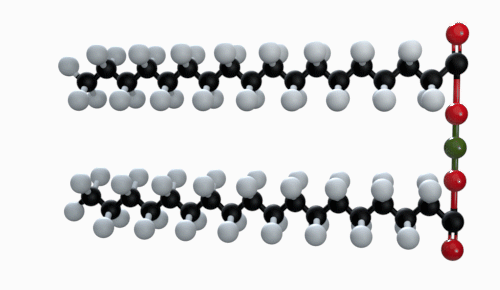
Enter your details to get the User manual, Spec Sheet and Video links for Magnesium Stearate
Are all excipients safe for all ages to consume?
Yes, it does not matter what age, size or sex the person consuming the products is. It is, however, important to check the intolerance data.
Are all the excipients safe for human consumption?
Yes, all of the excipients are safe for human or animal consumption. There are some precautions that should be taken when handling them and there are some people that might have intolerances to some of them. Information on this can be found in the products MSDS and Intolerance Data Sheet. This can be found in this section for every excipient.
Are your Excipients natural?
Yes, all of our Excipients are extracted from natural sources. For more information please visit the individual product pages.
Can I get a better price for excipients than is listed on the website?
Yes, we have bulk pricing for all of our excipients, and these can be found in this section. We offer bulk in 500 kg, 1 ton, 2 ton and 5 ton lots. The prices are set on these quantities as these are the amounts that will fit on pallets.
Can I have a CoA for my Excipient?
Yes. CoA stands for Certificate of Analysis this is also known some times as an MSDS (Material Safety Data Sheet) all of the information contained in a CoA is inside the MSDS for every LFA product which is emailed to you after purchase.
Can I produce tablets without Excipients?
It is unlikely that you will be able to produce tablets without using any Excipients at all. Certain products do bind without Excipients, but then do not flow through the machine. We advise that you use our Firmapress ready mix as this works with 99% of products.
Dissolving rate? Any known factors that can affect the rate, speed up or slow down the breakdown of a tablet?
Yes. There are two things at play here. You can get hygroscopic and hydrophobic excipients. Hygroscopic means that they take on water quickly, while hydrophobic means that they repel water.
There are products know as supper disintegrants. These products help the breakdown of tablets. At the moment LFA does not sell any supper disintegrants.
Magnesium stearate is hydrophobic this means that it will slow the breakdown of a tablet.
However, it is used in such small amounts that most of the time it will not make a difference to our customer's products. If they would like to be sure then they should conduct what is known as a disintegration test.
How long is the storage period of each excipient? What is the shelf life?
Firmapress - 2 years form batch date.
Dextrose - 3 years from batch date.
Dicalcium Phosphate - 3 years from batch date.
Microcrystalline Cellulose -
Magnesium stearate -
Lactose - 2 years from batch date.
Silica Dioxide - 2 years from batch date.
How should I clean contact parts that have come into contact with my excipients or active ingredients?
here are 6 steps that should be followed as a general rule of thumb when cleaning contact surfaces that have come into contact with powders:
Dry Clean - First you need to remove as much of the dry powder as possible. You can do this using a hover/vacuum. Make sure that the vacuum you are using has a filter good enough to handle fine dust.
Wet Clean - Next you need to perform a wet clean. This can be done with warm water and soap or if available an ultrasonic cleaner.
Rinse - Next you need to rinse off any soap with potable water (drinking water). You do not have to do this if you used an ultrasonic cleaner in the last step. It is important to ensure that all parts are thoroughly dried immediately after washing to avoid any rusting.
Sanitise - Next you need to sanitise the surface. This step is recommended by the FDA. There are a number of sanitising solutions available designed to be applied and left on.
Lubricate - You now need to lubricate any parts that require it. This should be with the appropriate grade oil or grease considering your use and greasing chart. Store - Finally store any of the parts in a cool dry place. If you are storing them on the machine then make sure the machine is in a temperature controlled environment with low humidity.
What is the difference between the range of excipients?
We offer Microcrystalline Cellulose, Magnesium Stearate, Dicalcium Phosphate and Firmapress in our range of excipients.
Microcrystalline Cellulose is a binding agent, which holds the content of the tablet together.
Dicalcium Phosphate is a flowing agent and helps move ingredients through the machine before they are compressed.
Magnesium Stearate is a dry lubricant and helps again with the movement of ingredients through the machine but also helps with the ejection of the tablets from the machine. Please note that Magnesium Sterate does not bind by itself.
Firmapress is an all in one mix of Microcrystalline Cellulose, Magnesium Stearate and Dicalcium Phosphate.
What is the mesh size of your excipients? etc.
Dextrose - approx 100 mesh
Dicalcium Phosphate - approx 100 mesh
Microcrystoline Cellulose - approx 120-200
Magnesium sterate -
Lactose - 80 mesh
Silica Dioxide -
Firmapress - 100-200 mesh
What kind of agent is each excipient?/ What is the main use of each excipient?
Dextrose - Sweetener, binding agent, good for chewable tablets or candy.
Microcrystalline Cellulose - Binder, filling agent. Good at binding tablets and making them bigger. It can also be used as a filler for capsules.
Magnesium stearate - Dry Lubricant. This stops products from getting stuck to the tooling. It can also help with powder flow issues and caking issues.
Lactose - Binder, sweetener and bulking agent. It has a large mesh so it flows well but most people do not like it because of the intolerance issues.
Silica Dioxide - Flowing agent. This assist powders in flowing smoothly through the machines. It also helps with cacking issues where powders get stuck to the machine.
What kind of condition should excipients be stored in?
Firmapress - 2 years form batch date.
Dextrose - 3 years from batch date.
Dicalcium Phosphate - 3 years from batch date.
Microcrystalline Cellulose -
Magnesium stearate -
Lactose - 2 years from batch date.
Silica Dioxide - 2 years from batch date.
Which excipient should I add if the product doesn't bind well?
If your product does not bind well then we would recommend using MCC. This can be used in any % the limiting factor is the size of the tablet.
If the amount of MCC you would have to use would be too much or if you do not want to use MCC then you have 3 other options: Ask your supplier for a directly compressible or tabletable grade of your product. Spray dry your product. Wet granulate your product.
Which excipient should I add if the product is sticky?
If your product is sticky then you will need to add a dry lubricant to your mix. For this, we recommend magnesium stearate.
We do not recommend that you add more than 1% to the mix as more than this can cause capping. If your product is still sticky at this point then we would recommend looking into granulation.
Which excipient should I add if the product/API is clumpy?
If your product or API is clumpy then you will need to add an anticaking agent. For this, we recommend silicon dioxide. We only recommend adding a maximum of 2% of this to the mix






